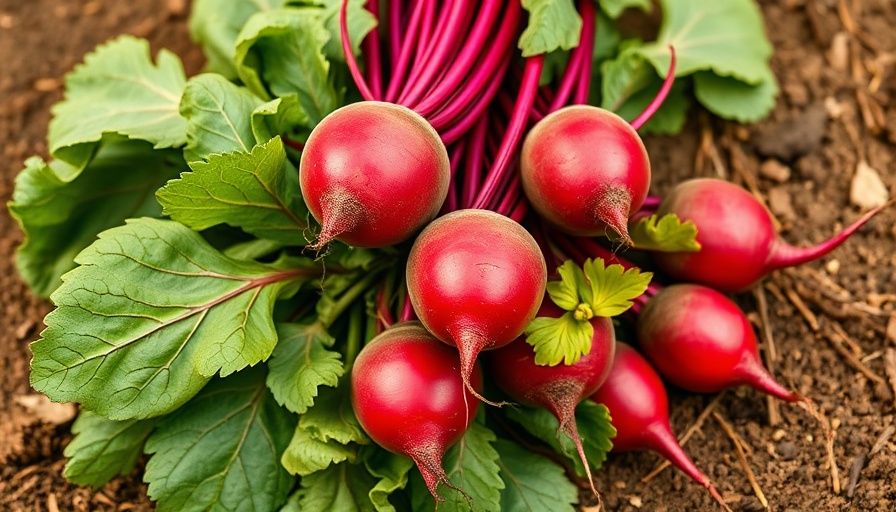
Discover the Profit Potential of Beet Farming
Beet farming can be a highly rewarding endeavor for small business owners looking to diversify their agricultural offerings. Thanks to their versatility and ease of cultivation, beets are an ideal crop for those who aim to maximize their land's productivity without incurring high maintenance costs. The beauty of this root vegetable lies not only in its culinary applications but also in its practical benefits for small to mid-sized farms.
What Makes Beets a Smart Investment?
In a market that prizes freshness and quality, beets hold a significant advantage. With a long shelf life, they can be sold directly to local markets, grocery stores, and restaurants, reducing waste and maximizing profit margins. Beyond their roots, beet greens are gaining traction in health-conscious culinary scenes, being rich in nutrients and sought after by chefs. The rise of organic and locally sourced produce makes growing beets a relevant choice for forward-thinking farmers.
Exploring Beet Uses Beyond the Roots
The potential profitability of beets extends far beyond the bulbous roots. The leaves, which often end up as waste, can be marketed as nutrient-dense microgreens or incorporated into gourmet dishes. Additionally, sugar beets can be processed into natural sweeteners, a popular option in today's health-centric food trends. Furthermore, beet pulp serves as an excellent, fiber-rich animal feed, presenting another revenue channel through sales to livestock farmers.
Selecting the Best Beet Seeds for Profit
Starting with quality seeds is crucial for any aspiring beet farmer. Options abound, from the widely popular Detroit Dark Red, known for its tender and sweet roots, to the visually striking Chioggia, which dazzles chefs with its candy-striped interior. Proven UK favorites like the Bulls Blood and Golden Beets add to the variety to attract different buyer segments.
Essential Growing Practices for a Successful Beet Crop
To foster a productive beet crop, it’s essential to understand their growing requirements. Beets thrive in cooler temperatures and rich, well-draining soil. Regular watering and soil amendment with compost can significantly improve yield. For optimal growth, direct sowing seeds in the right season and ensuring adequate sunlight exposure will aid in developing healthy, flavorful roots.
The Market Demand for Beets
Market observations indicate a robust demand for high-quality beets. Wellness trends continue to emphasize the nutritional benefits of root vegetables, which positions beets favorably in local produce markets. As more consumers look to support local economies through farm-to-table initiatives, your beet crops could meet this demand, potentially leading to sustained sales and long-term profitability.
Final Thoughts: Taking the Leap into Beet Farming
If you’re contemplating adding beets to your farming repertoire, now is the perfect time to start planning. With a low barrier to entry and high market potential, beets present an excellent opportunity for profit. By harnessing effective farming practices and selecting the right varieties, you can cultivate beets that not only earn you revenue but also provide wholesome, nutritious produce to your community.
 Add Row
Add Row  Add
Add 



Write A Comment